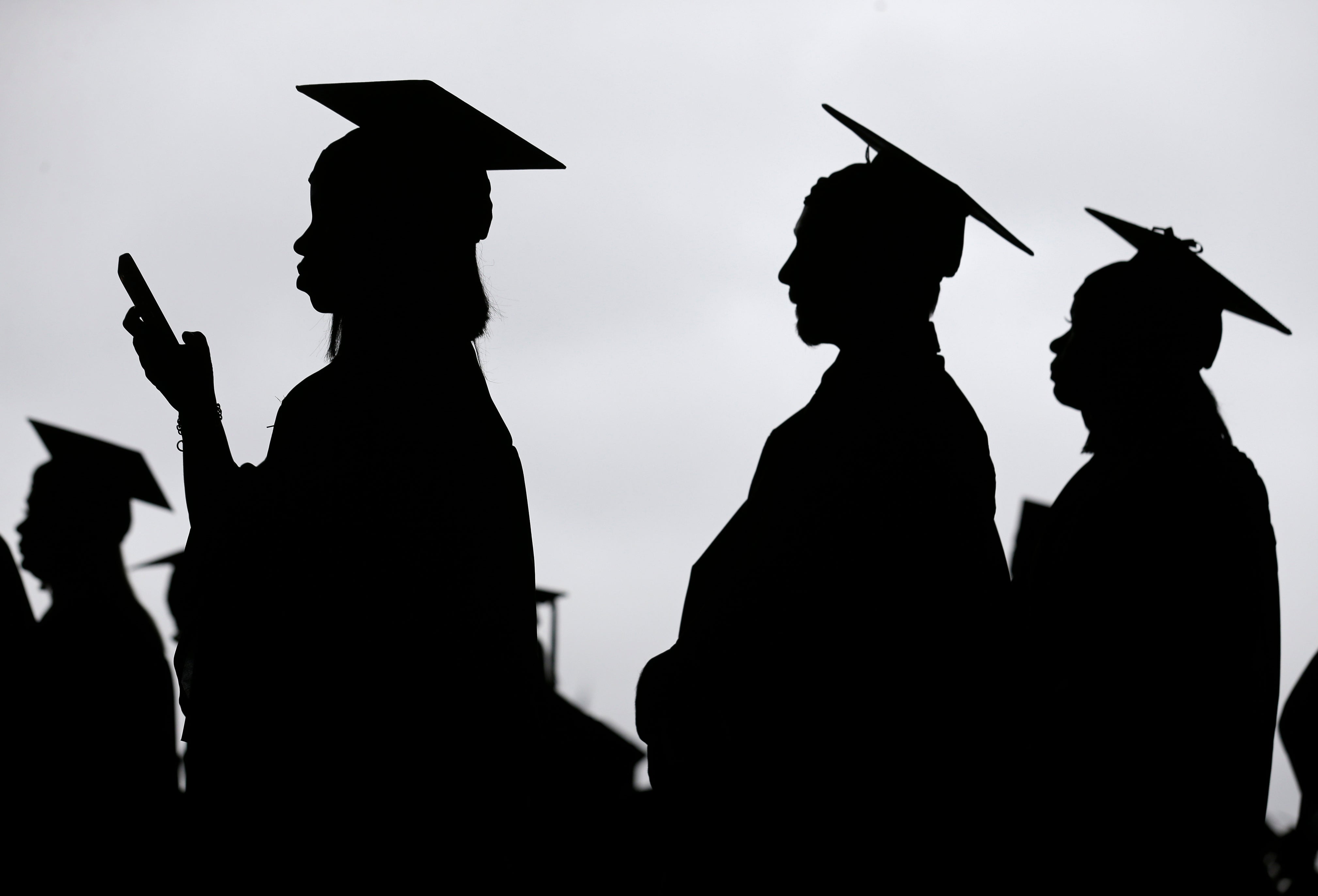How to handle college loan debt as an unemployed recent grad
Many new college graduates are struggling to find work as their first student loan payments loom on the horizon

Your support helps us to tell the story
From reproductive rights to climate change to Big Tech, The Independent is on the ground when the story is developing. Whether it's investigating the financials of Elon Musk's pro-Trump PAC or producing our latest documentary, 'The A Word', which shines a light on the American women fighting for reproductive rights, we know how important it is to parse out the facts from the messaging.
At such a critical moment in US history, we need reporters on the ground. Your donation allows us to keep sending journalists to speak to both sides of the story.
The Independent is trusted by Americans across the entire political spectrum. And unlike many other quality news outlets, we choose not to lock Americans out of our reporting and analysis with paywalls. We believe quality journalism should be available to everyone, paid for by those who can afford it.
Your support makes all the difference.Entry-level jobs are scarce for recent college graduates, which leaves the Class of 2020 in a precarious position as their student loan debt comes due.
Taylor Cabrera has been job-hunting for months since graduating from the University of Mississippi last spring with dual bachelor’s degrees in biology and physics, and has moved in with family in Miami. Her only solid job lead so far was a two-week marketing stint that didn’t pan out, though she says she’s feeling good after a recent interview for an entry-level mortgage position.
Despite her challenges, Cabrera says she knows she’s fortunate when it comes to her student loans. Earning hefty scholarships meant she took on $14,000 in debt, about half of what the average undergraduate carries, according to the Institute for College Access and Success.
“It’s pretty good compared to what everybody else has, but it still hurts my soul,” Cabrera says.
Student loan payments typically begin six months after graduation. But those with federal loans like Cabrera have some respite: There’s an automatic, no-interest payment pause, known as forbearance, in place for all borrowers with federal student loans through December.
Private loan borrowers didn’t get the same break. But all borrowers have options to make payments more manageable, whatever their employment status or type of debt they carry.
EMPLOYMENT BARRIERS FOR RECENT GRADS
Leaving college without a job offer isn’t uncommon, especially during economic downturns. But the class of 2020 faces unique challenges.
The effects of COVID-19 have hit every industry, says Nicole Smith, research professor and chief economist at Georgetown University’s Center on Education and the Workforce. She adds that outside of telecommunications and tech, very few sectors are hiring right now.
“If you’re looking for a corona-proof job, it doesn’t exist,” Smith says.
Positions with titles that include “entry level” or “new grad” have dropped 68% compared with the same time last year, according to a June 2020 report by Glassdoor. Graduates with little or no experience are competing with millions of unemployed Americans.
On top of that, new entrants to the workforce can’t access the safety net of unemployment benefits, even as the prospect of student loan payments looms.
TWO OPTIONS FOR FEDERAL STUDENT LOAN BORROWERS
Until employers start hiring again, recent graduates have some options to ease their debt burden.
The federal payment pause gives them time to breathe since loan bills won’t be due until January, barring a possible extension. To manage payments when they restart, those without jobs can choose an income-driven repayment plan or an unemployment deferment.
An income-driven repayment plan is your best long-term option. It caps payments at a portion of your income — 10% for example — and extends the repayment term. If you’re unemployed — or underemployed — your payment could be zero. You must contact your student loan servicer to enroll.
If you need short-term relief, unemployment deferment allows you to postpone repayment for up to 36 months in six-month increments. It’s less desirable than income-driven repayment because interest builds and is added to the total debt when repayment begins. To qualify for an unemployment deferment, you’ll need to apply with your servicer and prove you’re either receiving unemployment benefits or, in the case of recent graduates, seeking full-time work.
Cabrera says she plans to look into income-driven repayment.
HAVE A PLAN BEFORE PAYMENTS START
If you’re planning to change your loan payments, do it as soon as possible to keep payments manageable, says Scott Buchanan, executive director of Student Loan Servicing Alliance, a nonprofit trade association representing student loan servicers.
Even if you’ve yet to begin payments, you can talk to your servicer to start off in an income-driven repayment plan when payments begin in January, Buchanan says.
Private student loan borrowers have fewer options to alter or pause payments compared with federal student loan borrowers. You must contact your lender to find out if you qualify for a temporary reduction in the payment amount or to request forbearance.
Several private lenders are offering disaster or emergency forbearance for up to 90 days in addition to any existing options. Unlike the current automatic pause on federal loans, any private loan forbearance still accrues interest.
_________________________
This article was provided to The Associated Press by the personal finance website NerdWallet. Anna Helhoski is a writer at NerdWallet. Email: anna@nerdwallet.com.
RELATED LINKS:
NerdWallet: Income-Driven Repayment: Is It Right for You? http://bit.ly/nerdwallet-repayment
Glassdoor: Where New Grads Want to Work During the COVID-19 Crisis https://www.glassdoor.com/research/new-grads-during-covid-19/